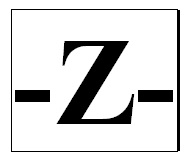
Studying every. single. day.
Since my last post, inspired by Nick in Denmark and a colleague of mine who is on a 155-day Duolingo streak and is acing her Spanish class as a result, I have tried to establish what Duolingo calls a streak – that is, I have tried to study my Anki flash cards every single day.
This is a bit of a change for me. But I have to say that it works. At the moment I’m on a 73-day steak. I’m learning 15 new phrases each day, as well as revising the phrases that I have already learnt.
It works out at about 150 cards per day, and I’m consistently getting 90% of the answers right. When I was trying to average 70 new words per week, and not studying on weekends, I was averaging about 80%. Last year, when I tried learning 100 new words at a time, I had a 60% success rate.
It’s more fun when you’re getting most of the answers right, and by taking it one day at a time, I don’t get overwhelmed by the enormity of the task.
Furthermore, in the last 10 weeks I’ve learnt more vocabulary than I did last year. I’ve finished memorising my Chinese phrasebook (more about that in another post), and have moved on to the FSI Standard Chinese course – I’ve almost completed four units.




